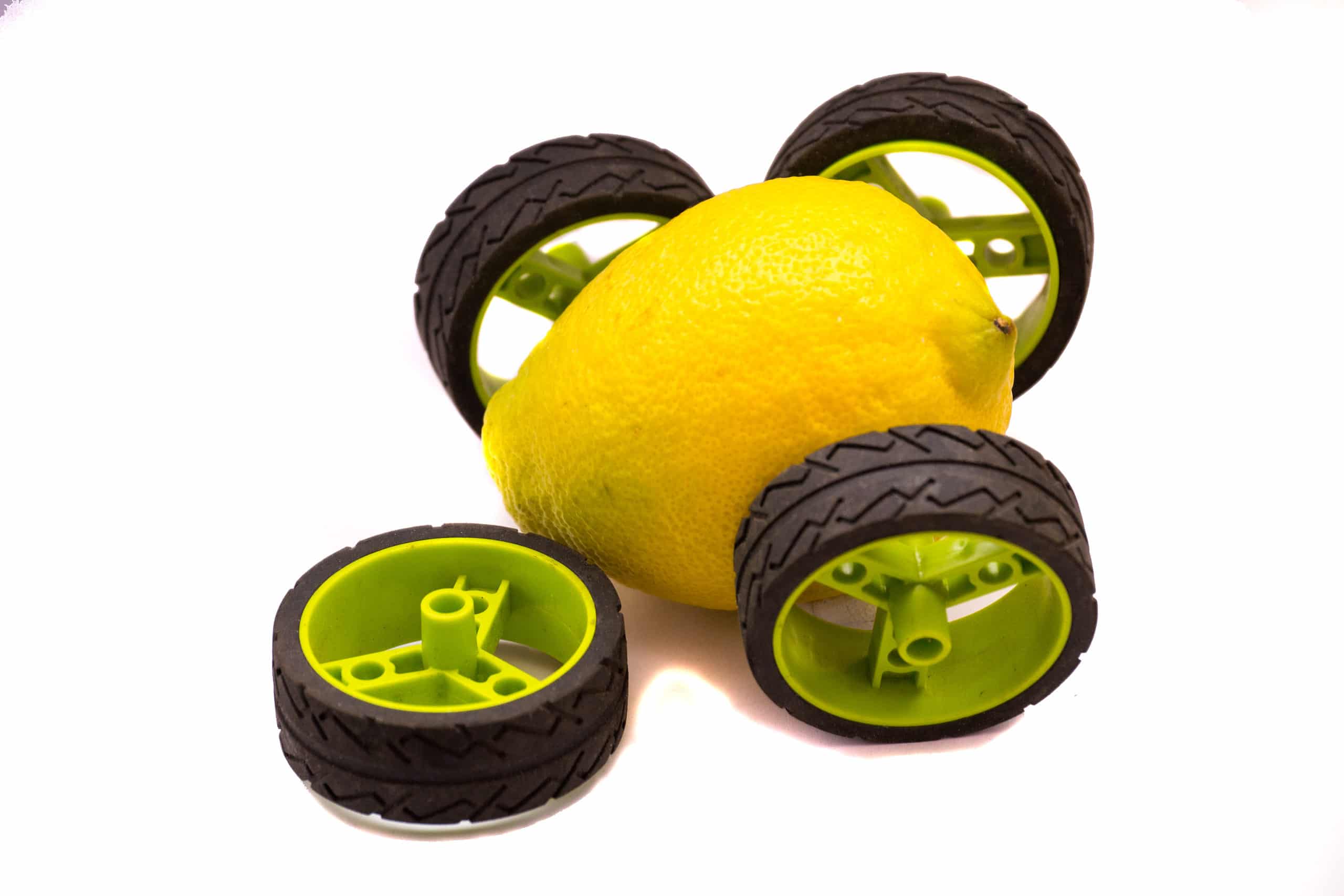Share

You’ve probably heard of a “lemon law” – laws that protect people who buy new vehicles if they end up with a lemon, or a new car that has a defect in it. Many states have buyback provisions in their lemon laws, which means that the dealer or manufacturer has to buy the car back from you if you end up with a defective vehicle.
The question is – what happens to all those lemons? There’s thousands of defective cars every year that they have to buy back. And anyone who’s ever bought a car knows that some of those dealers are unscrupulous, to put it nicely.
So what some dealers or even manufacturers do is something called lemon laundering. Just like when someone launders money to make it look clean, they “launder” the defective car (that’s now a used car) by trying to pass it off to an unsuspecting consumer without telling them about the defect. The dealer or the manufacturer gets lemonade, and you get stuck with the lemon. If you bought a car that turned out to be a lemon, Click Here to Submit Your Claim. We don’t charge to evaluate cases, and you may have a legal claim.
You might be surprised by some of the big companies that’ve been caught doing this. Chrysler settled with the New York attorney general over 400 cars they allegedly laundered, and the California Department of Motor Vehicles has previously taken action both against General Motors and Chrysler based on allegations of lemon laundering. And more recently, there have been allegations that Tesla is lemon laundering as well. A case called Alexander v. DaimlerChrysler Corp. in North Carolina summarized some of the history and noted that Ford had been sued in California and hit with a $10 million jury verdict for lemon laundering, and that Chrysler sold 52,000 repurchased vehicles between 1996 and March 2002. Just think how much money car companies are losing from these lemon buybacks, and you’ll understand why there’s a huge incentive for them (or people they’re selling them to) to engage in fraud.
The tactics of the manufacturer have gotten more subtle: they might disclose the defect, but provide a false statement to a dealer that they’ve repaired it even when it’s not even possible to fix it. And when you as a consumer buy the car, the dealer shows you a statement from the manufacturer that it’s repaired, and you trust them (and end up with the lemon).
Another tactic is to call the lemon buyback a “good will” buyback. This means that the manufacturer settles out of court when a consumer sues them, and then tells the dealer they sell the lemon to that it was all just to get rid of the case – they were acting in good will, but there wasn’t really a defect. They play games with what they call the buy back to try to keep from being covered by laws that protect someone else who buys the lemon.
What is a lemon laundering law?
A “lemon laundering law” is a law passed by a state government to try to protect consumers who’re victims of lemon laundering. These laws can vary dramatically depending on where you bought the car, so it’s hard to say what your rights are without knowing where you live. Most states require that the manufacturer disclose that a car was a buyback if they resell it after it turns out to be a lemon. And a lot of states actually require that a lemon law warning be put on the car’s title if there’s been a buyback.
But let’s look at a few examples:
California:
California is one of the states with the strongest consumer protection laws, so it’s not surprising that they have a strong law here as well. The California statutes prohibiting lemon laundering are section 1793.23 and 1793.24 of the California Civil Code, and section 4453 of the California Vehicle Code.
The first two sections are called the Automotive Consumer Notification Act. That law requires any manufacturer who buys back a lemon to “cause the vehicle to be retitled in the name of the manufacturer, request the Department of Motor Vehicles to inscribe the ownership certificate with the notation “Lemon Law Buyback,” and affix a decal to the vehicle….”
So any buyback that happens in California has to have those words on the title and has to have the decal on the car itself. The decal has to be on the “left front doorframe of the vehicle,” so you should see one there because it’s also illegal for anyone to remove the decal. And the decal would also say “Lemon Law Buyback.” If your car was a buyback, and it doesn’t have the decal, it violates the law.
And the law is part of the Song Beverly Consumer Warranty Act which specifically allows for you to recover not just your damages but your attorney’s fees.
California also has a law called the Unfair Competition Law that can be used to sue anytime anyone violates a statute.
Then you can also sue for common law causes of action like fraud (although it’s not as strong as the statutes are).
Georgia:
Georgia’s lemon laundering statute is Ga. Code Ann. § 10-1-790. That law prohibits reselling a lemon unless two conditions are met: (1) “The fact of the reacquisition and nature of any alleged nonconformity are clearly and conspicuously disclosed in writing to the prospective transferee, lessee, or buyer” and (2) “The manufacturer warrants to correct such nonconformity for a term of one year or 12,000 miles, whichever occurs first.”
In plain English, that means that in Georgia, anyone trying to resell a lemon has to clearly disclose it to whoever is buying, and they also have to give you a warranty. And as a consumer, you have a right to sue them if they violate it knowingly under the Georgia Fair Business Practices Act, which is a separate law that lets you recover your damages and your attorney’s fees.
You can also sue for common law fraud and other causes of action, because the Georgia lemon laundering law is “cumulative” – it doesn’t replace all the traditional remedies, it adds to them.
Texas:
The Texas lemon laundering statute is Texas Occupations Code Annotated § 2301.610. That law requires that the manufacturer or distributor “issue a disclosure statement stating that the vehicle was repurchased or replaced by the manufacturer, distributor, or converter under this subchapter. The statement must accompany the vehicle through the first retail purchase following the issuance of the statement and must include the toll-free telephone number described by Subsection (d) that will enable the purchaser to obtain information about the condition or defect that was the basis of the order for repurchase or replacement.”
In plain English for this one, in Texas the law requires that they give a disclosure statement to the first retail purchaser – i.e., the first consumer like you. So they can’t sell it to a car dealership and then just wash their hands of the issue. The statement has to essentially follow the car around until the first person buys it.
The law also requires that the “manufacturer, distributor, or converter must restore the cause of the repurchase or replacement to factory specifications and issue a new 12-month, 12,000-mile warranty on the vehicle.”
So they have to fix the car to be up to factory specs, and there also has to be a warranty on it. You have legal rights to that warranty even if you don’t know about it, and that means you can sue under warranty law.
But the Texas Deceptive Trade Practices Act (“DTPA”) is also another strong law that protects consumers from fraud. Like the other states’ laws, it lets you recover attorney’s fees if you win and recover your damages. And the common law legal claims like fraud exist as well.
If you’re having a problem a car that you bought and you think it might be a lemon, or that you’re a victim of lemon laundering, Click Here to Submit Your Claim. We can take a look at your claim for no charge and see if we’ll be able to help.


